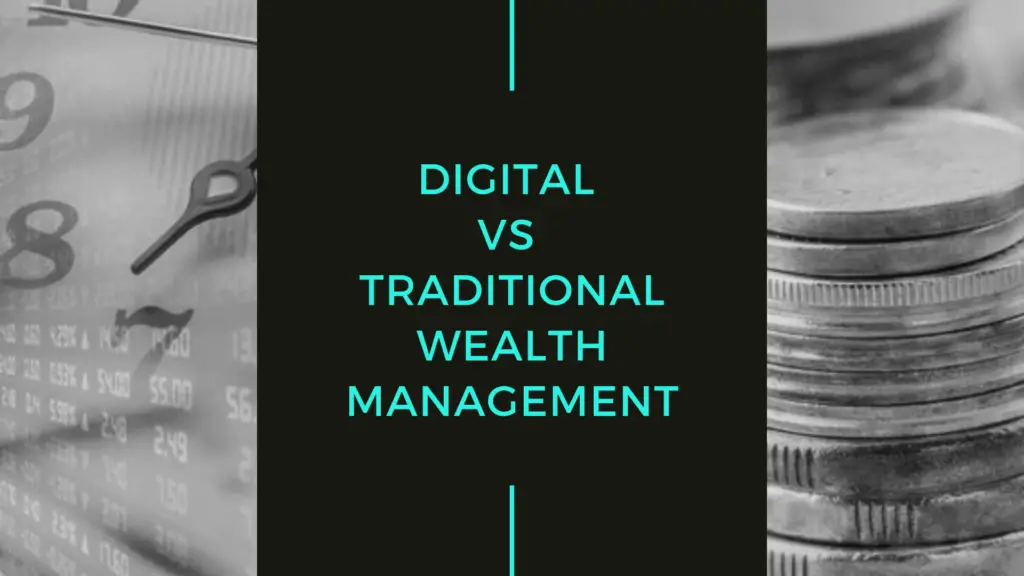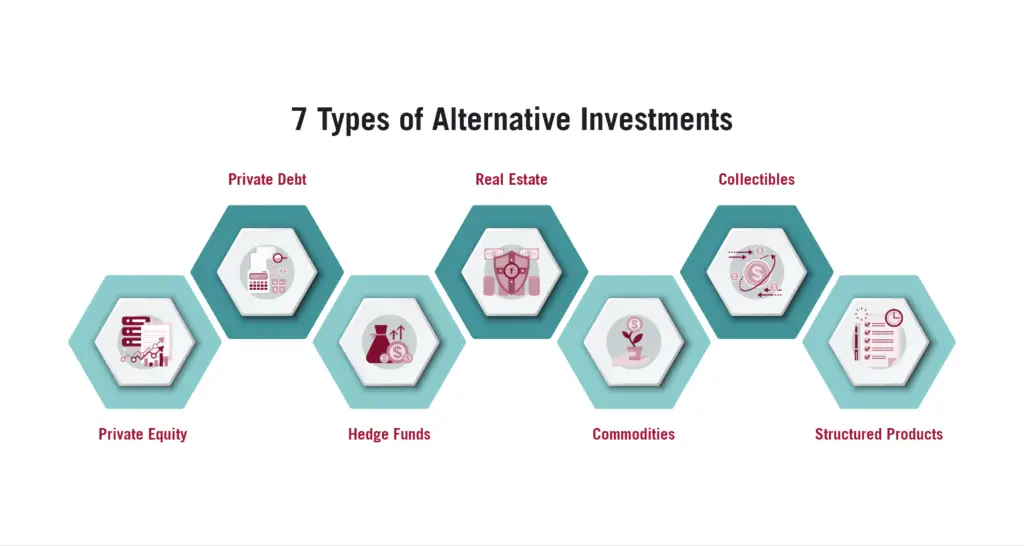Building a modern financial empire requires a well-structured modern wealth creation methods and forward-thinking strategies in today’s ever-evolving financial landscape.
The 21st century has introduced us to a new era of wealth creation, where traditional approaches may no longer suffice. Staying ahead of the curve and unlocking the secrets to success in this digital age is essential.
This article delves into the groundbreaking techniques that can propel your financial goals to new heights. From leveraging technology and digital platforms to exploring alternative investment opportunities, we uncover the building blocks of a modern financial empire.
Discover how to harness the power of artificial intelligence, cryptocurrencies, and crowdfunding to amplify your wealth-building potential. Whether you’re an entrepreneur, investor, or simply looking to secure your financial future, this article provides invaluable insights and practical advice for navigating the complex world of 21st-century wealth creation.
Embrace cutting-edge strategies and unlock the keys to building a robust and prosperous financial empire in the digital age. Prepare to thrive, innovate, and redefine what it means to be financially successful in this rapidly changing era.
What is Modern Wealth Creation?

Modern wealth creation refers to the strategies, tools, and opportunities that have emerged to build and grow your financial resources in recent decades. It goes beyond traditional methods and embraces the influence of technology, globalization, and shifting economic trends.
Modern wealth creation goes beyond traditional notions of accumulating assets and encompasses broader ideas of financial well-being and impactful investing. Here’s a breakdown of key features that define this concept:
Core Elements of Modern Wealth Creation
- Entrepreneurial Mindset: Embracing innovation, calculated risk-taking, and the drive to create value in the marketplace, whether through traditional business or leveraging new platforms.
- Tech-Savviness: Utilizing technology to optimize finances, build new income streams (e-commerce, online courses), and access investment opportunities.
- Focus on Experiences: Modern wealth encompasses valuing experiences and personal growth as much as material possessions. Travel, education, and building a lifestyle you love are core elements.
- Flexibility and Adaptability: Being receptive to new earning models (the gig economy, remote work), and adapting skills to a rapidly changing marketplace.
- Financial Literacy: Having a strong understanding of budgeting, investing, debt management, and retirement planning, often exceeding just relying on traditional advisors.
- Impact Investing: Consciously aligning investments with personal values, including ventures creating positive social or environmental change.
Why Focusing on Modern Wealth Creation Matters:
- Overcoming Economic Challenges: Traditional income sources are no longer as stable as once, and modern wealth creation strategies can provide alternative and supplementary income streams.
- Taking Advantage of New Opportunities: Technological, cultural, and economic shifts create unique opportunities for those who can harness them.
- Achieving Financial Goals Faster: Modern wealth creation tools and methods can accelerate wealth accumulation compared to relying solely on salary increases and savings.
How Modern Wealth Creation Differs from Traditional Models
- Emphasis on Creation over Accumulation: While asset accumulation remains important, modern wealth focuses on actively generating multiple income streams, leveraging your knowledge and skills into new opportunities.
- Blurred Lines between Work and Life: Rather than a rigid 9-5 structure, modern wealth builders seek flexibility and blend work with passions and experiences.
- Prioritizing Well-being and Purpose: Success isn’t simply defined by net worth, but also having time for meaningful pursuits and contributing to causes you care about.
Examples of Modern Wealth Creation
- Starting an online business leveraging skills or hobbies
- Building a diversified investment portfolio that includes alternative assets and impact investments
- Creating passive income streams through digital products or rentals
- Monetizing a blog or social media following
- Using tech tools to automate finances and optimize savings
- Freelancing or consulting with flexible hours and location independence
Important Note: Modern wealth creation is not about getting rich quickly. It emphasizes building a sustainable, fulfilling lifestyle that aligns financial security with personal values.
Emerging Trends Unlocking New Pathways to Financial Success
In the dynamic landscape of the 21st century, traditional approaches to wealth-building are undergoing a remarkable transformation. With the advent of groundbreaking technologies and evolving economic paradigms, individuals seeking to construct their financial empires are increasingly turning to innovative methods.
We will delve into modern wealth creation, exploring how leveraging technology, diversifying investments, embracing entrepreneurship, and tapping into emerging trends can unlock new pathways to financial success.
Investing in Emerging Trends: Unlocking New Pathways to Financial Success
In the ever-evolving landscape of wealth creation, staying ahead of emerging trends is crucial for seizing opportunities and maximizing returns. Individuals can unlock new pathways to financial success in the 21st century by identifying and investing in growth-promised sectors.
Let’s explore some of the key emerging trends shaping the future of wealth creation:
1. Renewable Energy and Sustainable Investing:
With increasing awareness of climate change and environmental sustainability, renewable energy has emerged as a lucrative investment opportunity. Solar, wind, and other clean energy sources are experiencing rapid growth as governments and businesses worldwide transition towards a greener future.
Investing in renewable energy companies, green bonds, and sustainable infrastructure projects offers attractive returns and contributes to a more sustainable planet.
2. Healthcare Innovation and Biotechnology:
The healthcare sector is undergoing a revolution driven by technological advancements and breakthrough innovations in biotechnology. From precision medicine and gene editing to telemedicine and digital health platforms, the convergence of healthcare and technology is creating exciting investment opportunities.
Investing in biotech companies developing cutting-edge therapies and medical technologies can yield significant returns while advancing medical science and improving healthcare outcomes.
3. Artificial Intelligence and Automation:
Artificial intelligence (AI) and automation are transforming industries across the globe, revolutionizing everything from manufacturing and transportation to healthcare and finance. Companies leveraging AI-powered solutions for data analysis, predictive modeling, and process automation are gaining a competitive edge and driving productivity gains.
Investing in AI-focused startups, robotics companies, and tech giants at the forefront of AI research can offer substantial growth potential in the future.
4. E-commerce and Digital Transformation:
The rise of e-commerce and digital transformation has reshaped consumer behavior and disrupted traditional retail models. With the convenience of online shopping and the proliferation of mobile devices, e-commerce continues to experience exponential growth, particularly in emerging markets.
Investing in e-commerce platforms, logistics companies, and digital payment solutions can capitalize on this trend and tap into the expanding global marketplace.
5. Space Exploration and Commercialization:
The space industry is undergoing a renaissance driven by private-sector innovation and government-led initiatives. With advancements in space technology, the commercialization of space has become a reality, opening up new opportunities for investment and economic growth.
From satellite communications and space tourism to asteroid mining and lunar colonization, investing in space-related ventures offers potential for astronomical returns and transformative breakthroughs.
6. Fintech Disruption and Digital Finance:
The financial technology (fintech) sector is disrupting traditional banking and finance, democratizing access to financial services, and revolutionizing how we manage money. From digital banking and mobile payments to blockchain-based cryptocurrencies and decentralized finance (DeFi), fintech innovations are reshaping the financial landscape.
Investing in fintech startups and disruptive technologies can capitalize on this trend and drive financial inclusion and innovation.
By recognizing and capitalizing on these emerging trends, individuals can unlock new pathways to financial success and position themselves at the forefront of wealth creation in the 21st century.
Wealth Creation Methods

Here’s a breakdown of various wealth creation methods, from traditional approaches to more contemporary strategies. Remember, every method has a risk/reward profile, so finding strategies that fit your situation is important.
Traditional Wealth Creation Methods
- Real Estate Investing: Owning and renting property, buying land for potential appreciation, or flipping houses for profit.
- Stock Market Investing: Buying shares in publicly traded companies. Potential for capital appreciation and dividend income.
- Career Development: Increasing your earning potential through education, job promotions, or acquiring high-demand skills.
- Saving and Budgeting: Setting aside a portion of your income consistently and creating a budget for disciplined spending habits.
- Entrepreneurship: Starting and building a successful business can offer significant wealth generation potential (but also involves high risk).
Modern Wealth Creation Methods
- Gig Economy: Leveraging online platforms to work as a freelancer or independent contractor, providing flexibility and additional income streams.
- Passive Income Streams: Creating products (eBooks, courses, etc.), earning royalties, or owning assets that generate income with minimal ongoing input.
- Cryptocurrency Investing: High-risk, potentially high-return investment in Bitcoin, Ethereum, or other digital currencies (extreme volatility is a major consideration).
- Alternative Investments: Investing in private equity, commodities, collectibles, or other assets less correlated to traditional markets.
- Peer-to-Peer Lending: Becoming a lender to vetted borrowers on platforms offers potential returns but considers borrower default risk.
Which Methods Are Right for You?
Consider these factors when choosing what paths to pursue:
- Risk Tolerance: How comfortable are you with the potential of losing money for the chance of bigger gains?
- Time Horizon: When do you need the money? Short-term goals require different strategies than long-term wealth building.
- Skills and Interests: Leverage your strengths and passions to choose strategies you will likely stick with.
- Financial Education: The more you understand any wealth-building method, the better your decisions will be.
Important Reminders
- Diversify: Don’t put all your eggs in one basket. Spread investments to manage risk.
- Due Diligence: Thoroughly research any investment opportunity before committing money.
- Compounding: Reinvesting earnings creates exponential growth over time.
- Professional Guidance: Consult a financial advisor for complex situations or larger investments.
Whether investing in renewable energy, biotechnology, AI, e-commerce, space exploration, or fintech, embracing innovation and staying ahead of the curve is key to building a modern financial empire.
18 Modern Wealth Creation Methods
Here’s a list of 18 modern wealth creation methods, along with some brief explanations. Remember, all investments have risks, and it’s wise to fully research and understand any method before committing your money.
- Freelancing: Offer your skills on platforms like Upwork and Fiverr for services like writing, design, programming, etc.
- Flipping: Buy undervalued items (homes, furniture, etc.), renovate or improve them, and sell for a profit.
- E-commerce (Dropshipping): Set up an online store without holding inventory, with a third party shipping directly to customers.
- E-commerce (Own Products): Create or source unique products and sell them through an online store you control.
- Email Copywriting: Write compelling emails that drive sales for businesses and marketers.
- Sales Page Copywriting: Craft persuasive copy that converts visitors into buyers on product landing pages.
- Social Media Ghostwriting: Manage social media accounts for businesses or individuals without them knowing your identity.
- Advertisement Copywriting: Write engaging ads for online platforms or print media.
- Funnel Creation/Consultation: Develop marketing funnels that attract and convert customers for businesses.
- Affiliate Marketing: Promote other people’s products and services, earning commissions on sales you generate.
- User-Generated Content Creation: Create engaging photos, videos, or reviews for brands to use, getting paid or rewarded.
- Day Trading: Buying and selling stocks or cryptocurrencies within the same day, aiming for short-term gains (extremely risky).
- Swing Trading: Holding stocks or crypto for a few days to weeks to capture larger price movements (still high risk).
- Growing & Monetizing Social Media: Build a substantial following and monetize with sponsored content, your own products, or affiliate marketing.
- Blogging/YouTube: Create valuable content, build an audience, and monetize through ads, affiliate marketing, or your own products/services.
- Digital Products: Offer eBooks, online courses, templates, stock photos, or other digital assets for sale on various platforms.
- NFT Creation & Trading: Create and sell unique digital assets (art, music, etc.) as non-fungible tokens. Proceed with caution as the NFT market is highly speculative.
- Cryptocurrency: Invest in established cryptocurrencies like Bitcoin or newer ones. Understand this is incredibly risky and volatile.
Important Things to Consider
- Leverage Your Skills: Many modern methods reward existing skills or talents.
- The Power of Online Communities: Build a network and engage with others sharing your wealth creation path.
- Persistence is Key: Most of these methods require time and effort to generate significant income.
Traditional vs. Innovative Wealth-Building

Traditional wealth-building strategies have long revolved around concepts such as saving diligently, investing in stocks and bonds, and climbing the corporate ladder. While these methods remain relevant, innovative approaches are gaining traction for their potential to generate wealth at an unprecedented pace.
Today, individuals are harnessing technology, exploring alternative investments, and venturing into entrepreneurship to carve out their financial destinies.
Traditional Wealth-Building Strategies in the US
- Real Estate Investment: Historically, owning property (residential, commercial, land) has been a significant driver of wealth in the U.S. due to potential appreciation in value and rental income.
- Stock Market Participation: Investing in the stock market, either directly through individual stocks or through mutual funds and ETFs, carries the potential for long-term growth, though it contains risks.
- Career Advancement: Steady employment with rising income levels has traditionally been a path to build wealth through savings and retirement plans like 401(k)s.
- Entrepreneurship: Starting and growing a successful business can lead to significant wealth generation, although this path often involves high risk.
Innovative Wealth-Building Strategies in the US
- The Gig Economy: Freelancing platforms and the rise of independent work offer flexible income streams but often lack the stability and benefits of traditional employment.
- Cryptocurrencies and Digital Assets: Bitcoin and other cryptocurrencies have the potential for high returns, but this market is extremely volatile and highly speculative.
- Alternative Investments: Platforms dedicated to investing in assets like art, fine wine, and collectibles are emerging but often have high entry points.
- Peer-to-Peer Lending: Becoming a lender on P2P platforms offers a potential return on investment but carries risks like borrower default.
- E-commerce and Online Marketplaces: Starting an online store or selling on platforms like Amazon or Etsy can provide new revenue streams.
Factors Influencing Wealth-Building in the US
- Economic Inequality: The widening gap between the wealthy and everyone else makes it harder for lower and middle-income individuals to utilize traditional wealth-building strategies.
- Tax Policies: Tax laws can either incentivize or disincentivize certain investment strategies. Changes in tax policies can have large impacts on wealth strategies.
- Rising Educational Costs: High student debt burdens can impede the ability of young people to save and invest early in life.
- Technological Disruption: Automation and artificial intelligence are changing the job market and the skills needed to succeed, directly impacting earning potential.
- Access to Financial Education and Resources: A lack of financial literacy can hamper the ability to leverage traditional wealth-building tools effectively.
Important Considerations
It’s crucial to remember that wealth-building in the US is not monolithic. Factors such as race, gender, and socioeconomic background can significantly impact opportunities and access to different strategies.
Also, any type of investment carries some degree of risk. It’s essential to conduct thorough research and consider your risk tolerance before pursuing any wealth-building strategy.
Leveraging Technology for Financial Success
One of the most significant shifts in wealth-building is integrating technology into financial strategies. Fintech innovations, such as robo-advisors, peer-to-peer lending platforms, and mobile payment solutions, empower individuals to manage their finances more efficiently and seize lucrative opportunities in the digital realm.
Key Areas Where Technology Helps
- Budgeting and Expense Tracking: Apps and software make budgeting easy and give you powerful insights into spending. Popular choices include:
- Mint: Comprehensive free budgeting tool, great for beginners.
- YNAB (You Need A Budget): Offers a unique, proactive budgeting methodology.
- Personal Capital: Excellent for investment tracking alongside budgeting.
- Automating Savings and Investments: Set up automatic transfers to savings accounts or investment platforms to build wealth without constant manual effort. Banks and platforms like Betterment and Acorns allow scheduled transfers of even small amounts.
- Robo-Advisors: These automated investment platforms use algorithms to create and manage portfolios. It is ideal for hands-off investing; popular options include Betterment and Wealthfront. Be aware of fees when choosing a service.
- Debt Management and Consolidation: Apps help track multiple debts, visualize payoff strategies (like the snowball or avalanche method), and find consolidation or refinancing options. Consider Credit Karma or the Tally app.
- Financial News and Education: Resources abound with up-to-date market news and educational content. Look to:
- Investopedia: Vast financial dictionary and educational content.
- NerdWallet: Great for reviews and comparisons of financial products.
- Major news outlets like Bloomberg or the Wall Street Journal (may have subscription fees)
Additional Tech-Focused Strategies
- Online Banking and Bill Pay: Streamline payments and avoid missed deadlines. Most bank services now have online portals.
- Comparison Shopping Websites: Research the best prices on everything from insurance to flights. Examples include Google Shopping, Kayak, and NerdWallet for financial products.
- Cashback and Rewards Programs: Earn rewards for everyday spending with apps like Rakuten (formerly Ebates), Ibotta, or through credit card programs.
- Tax Preparation Software: TurboTax and H&R Block guide you through tax filing, potentially saving you money compared to professional preparers.
Important Notes:
- Security: Always ensure your platforms and apps have robust security measures. Use strong passwords, enable two-factor authentication, and monitor your accounts.
- Human Touch: Technology is powerful, but don’t discount the value of financial advisors, especially for complex situations or major life changes.
- Your Financial Goals: The best tech tools align with your financial goals and needs.
Harnessing the power of automation, data analytics, and artificial intelligence, tech-savvy investors can optimize their portfolios and stay ahead of market trends.
Building a Diverse Investment Portfolio
Diversification has always been a cornerstone of sound investing, and in today’s fast-paced economy, it’s more crucial than ever. Beyond traditional stocks and bonds, savvy investors are exploring many asset classes, including real estate, commodities, cryptocurrencies, and startups.
Building a diverse investment portfolio is a cornerstone of financial success. Here’s a breakdown of key concepts and considerations for a US context:
Why Diversify?
- Risk Management: Diversification helps spread risk across different asset classes. If one asset class performs poorly, others may hold steady or gain, mitigating overall portfolio losses.
- Long-Term Growth: A well-diversified portfolio captures growth from various sectors of the economy, increasing your chances of profiting from diverse market movements.
- Peace of Mind: Portfolio diversification can provide peace of mind, knowing your investments aren’t overly reliant on a single company or industry.
Asset Allocation Strategies
- Stocks: Represent company ownership, offer high growth potential, and carry higher risk. Consider US large-cap stocks (established companies), small-cap stocks (high-growth potential but higher risk), and international stocks for added diversification.
- Bonds: Provide fixed income streams and are generally considered less risky than stocks. Explore US Treasury, corporate, and municipal bonds for tax-exempt income (on the municipal level).
- Cash Equivalents: Highly liquid assets like money market accounts and short-term CDs offer safety and immediate access to funds but lower returns.
- Alternative Investments: Real estate investment trusts (REITs), commodities like gold, or even cryptocurrency (with a very high-risk tolerance) can add diversification but require careful research.
Common Portfolio Allocation Models
- The 60/40 Portfolio: A traditional model with 60% allocation to stocks and 40% to bonds. Suitable for investors with a moderate risk tolerance and long-term investment horizon (over 10 years).
- Age-Based Allocation: Gradually shift your portfolio towards bonds as you near retirement, becoming more conservative with age.
- Risk Tolerance-Based Allocation: Your personal risk tolerance should be a key factor. More aggressive investors may allocate higher percentages to stocks, while conservative investors may favor bonds and cash equivalents.
Investment Vehicles for Diversification
- Mutual Funds and ETFs: These pooled investment vehicles offer instant diversification across various asset classes, often with lower minimum investment amounts. Choose low-cost index funds that track broad market indexes for a balanced approach.
- Individual Stocks and Bonds: Direct ownership allows more control over your portfolio but requires in-depth research and carries higher risk.
Additional Tips for US Investors
- Consider Tax Implications: Tax-advantaged accounts like 401(k)s, IRAs, and Roth IRAs offer tax benefits on contributions and/or growth, making them ideal for long-term investing.
- Rebalance Regularly: Review and rebalance your portfolio periodically to maintain your desired asset allocation as market conditions change.
- Stay Informed: Keep up with economic news and market trends, but avoid making impulsive decisions based on short-term market fluctuations.
Remember: There’s no one-size-fits-all approach. Tailor your portfolio to your goals, risk tolerance, and investment timeline. Consulting a financial advisor can be helpful, especially for complex situations.
Individuals can mitigate volatility and capture upside potential in emerging markets by spreading risk across various investments.
Exploring Alternative Investment Options

In addition to traditional asset classes, alternative investments are gaining popularity among forward-thinking investors. From venture capital and private equity to peer-to-peer lending and cryptocurrency, these unconventional avenues offer unique opportunities for wealth accumulation.
Exploring alternative investments can add diversification and potentially boost returns for your portfolio. Here’s a look at some popular options, with considerations for US investors:
Types of Alternative Investments
- Real Estate:
- Real Estate Investment Trusts (REITs): Publicly traded companies that own and manage income-generating properties. Offers exposure to real estate with easier liquidity than direct ownership.
- Real Estate Crowdfunding: Platforms like Fundrise or RealtyMogul allow you to pool funds with other investors to purchase properties.
- Direct Property Ownership: Offers potential for long-term appreciation and rental income but requires higher capital and management responsibilities.
- Private Equity: Investing in private companies not listed on stock exchanges. Potentially high returns, but also involves high risk and long investment horizons. Usually, it requires significant capital and access to private equity funds.
- Hedge Funds: Actively managed funds that use a variety of strategies, often aiming for high returns regardless of market direction. It can be complex with high fees, and performance is not guaranteed.
- Commodities: Investing in physical assets like gold, oil, or agricultural products. It may offer a hedge against inflation but can be volatile. You can invest via direct ownership, commodity futures, or ETFs.
- Collectibles: Art, fine wine, rare coins, etc., can offer potential appreciation, but markets are highly specialized and illiquid (difficult to sell quickly).
- Cryptocurrencies: Highly speculative digital assets with extreme price volatility but potential for high returns. Requires a very high-risk tolerance.
Important Considerations Before Investing
- High Risk: Many alternative investments carry a higher risk than stocks or bonds. Understand the potential for loss before investing.
- Liquidity: Alternative investments are often less liquid, meaning it can be harder to sell them quickly if you need your money.
- Fees: Alternative investments can come with high management fees. Carefully evaluate costs before investing.
- Due Diligence: Thorough research is crucial. Understand the asset, its market, and the risks involved.
- Accreditation Requirements: Alternative investments (like some private equity funds) may only be available to accredited investors (high-income or net-worth individuals).
Should You Consider Alternative Investments?
- Diversification: If you have a traditional stock and bond portfolio, alternative investments could add diversification.
- Risk Tolerance: Alternatives typically suit investors with a higher risk tolerance and a long-term investment horizon.
- Knowledge: Investing successfully often requires specialized knowledge about the alternative asset class.
Getting Started with Alternative Investment
- Learn First: Educate yourself thoroughly about specific alternatives before investing.
- Start Small: Allocate a small portion of your portfolio to alternative investments to manage overall risk.
- Consider Your Goals: Ensure the alternative investments align with your long-term financial goals and risk tolerance.
While alternative investments carry higher risk, they also present the possibility of outsized returns and diversification benefits not found in traditional markets.
The Power of Entrepreneurship in Modern Wealth Creation
Entrepreneurship has long been heralded as a pathway to wealth creation, and in today’s innovation-driven economy, its importance cannot be overstated. Entrepreneurs possess the vision, drive, and resilience to disrupt industries, create value, and generate substantial wealth.
Entrepreneurship holds significant power as a driver of wealth creation. Here’s a breakdown of why, with examples relevant to the US context:
How Entrepreneurship Builds Wealth
- Value Creation: At its core, entrepreneurship is about identifying problems and creating innovative solutions for which people are willing to pay. This creates economic value – the foundation for wealth generation.
- Job Creation: As businesses grow, they hire employees. This benefits the entrepreneur, creates wealth for the employees, and stimulates the economy as a whole.
- Innovation & Disruption: Entrepreneurs often challenge the status quo, leading to new products, services, and industries. This can reshape markets and lead to massive fortunes (think Silicon Valley tech giants).
- Equity Ownership: Unlike most employees, entrepreneurs own a large company stake. If the business succeeds, its equity ownership can generate significant wealth.
- Financial Independence: Successful entrepreneurship often leads to financial freedom, allowing individuals to control their income and make choices without relying on an employer.
Examples of Wealth Creation Through Entrepreneurship in the US
- Technology Giants: Icons like Bill Gates (Microsoft), Steve Jobs (Apple), Jeff Bezos (Amazon), and Elon Musk (Tesla, SpaceX) have all amassed enormous fortunes through entrepreneurial ventures that transformed industries.
- Main Street Successes: Countless small businesses across the US are engines of wealth for their owners. Restaurants, retail shops, and service providers may not be tech unicorns, but they create significant wealth for families and communities.
- The Rise of the “Side Hustle”: The gig economy and online platforms have made it easier for individuals to launch side businesses that can lead to additional income streams and potential wealth-building opportunities.
Challenges and Considerations
- High Risk: Entrepreneurship is inherently risky. Most startups fail, and even successful entrepreneurs often face setbacks.
- Hard Work and Sacrifice: Building a successful business requires long hours, dedication, and the ability to handle stress.
- Access to Resources: Not everyone has equal access to capital, networks, and support systems that can foster entrepreneurship. This is a key consideration in addressing wealth inequality in the US.
Why Support Entrepreneurship Matters
- Economic Growth and Job Creation: Entrepreneurship drives economic activity and significantly creates jobs.
- Innovation and Problem Solving: Entrepreneurs are adept at identifying problems and developing solutions, often leading to social and technological progress.
- Wealth Mobility: Entrepreneurship offers a potential path to break down barriers and promote wealth mobility, particularly for underrepresented groups.
Whether launching a tech startup, pursuing a passion project, or scaling a small business, entrepreneurial endeavors offer unparalleled potential for financial success and personal fulfillment.
Utilizing Passive Income Streams
Passive income streams are another key component of modern wealth-building strategies. From rental properties and dividend-paying stocks to affiliate marketing and digital products, passive income sources enable individuals to generate revenue with minimal ongoing effort.
What is Passive Income?
Passive income requires an initial investment of time, money, or both but offers ongoing income with minimal continued effort. True passive income is rare; most streams require maintenance or occasional activity.
Popular Passive Income Streams
- Dividend Stocks: Own shares in companies that distribute regular dividends, offering a portion of their profits.
- Rental Properties: Purchase and manage real estate, collecting rental income while potentially benefiting from long-term property appreciation.
- Peer-to-Peer (P2P) Lending: Lend money to vetted borrowers through platforms like LendingClub and Prosper, earning interest on your investment.
- High-Yield Savings Accounts and CDs: Earn interest on deposits in savings accounts or Certificates of Deposit with higher-than-average interest rates.
- Digital Products: Create and sell eBooks, courses, music, photos, templates, or other digital assets on platforms like Etsy, Teachable, or Creative Market.
- Affiliate Marketing: Promote other people’s products or services, earning a commission on sales through your unique links.
- Blogging and YouTube: Build an audience with valuable content and monetize through advertising, sponsored posts, or your products or services.
Strategies for Building Passive Income
- Focus on Your Strengths and Interests: Choose income streams that align with your skills or passions.
- Start Small, Scale Over Time: Don’t expect to get rich quickly. Start with one income stream, master it, and then consider adding more.
- Invest in Quality: When creating digital products or selecting dividend stocks, prioritize quality for long-term success.
- Automate and Outsource (When Possible): To achieve greater ‘passiveness’, automate processes and consider outsourcing tasks as your income grows.
Important Considerations
- Time Investment: Most passive income streams involve upfront work for creation, setup, and marketing.
- Risk: All investments carry some degree of risk. Choose passive income streams that align with your risk tolerance.
- Tax Implications: Passive income may be subject to different tax treatment than earned income. Understand the tax implications before choosing an income stream.
- Market Fluctuations: Economic cycles and market fluctuations can impact some passive income sources (like dividend stocks or P2P lending).
By cultivating multiple streams of passive income, individuals can achieve financial independence and enjoy greater flexibility in their lifestyle choices.
The Role of Cryptocurrency and Blockchain Technology in Modern Wealth Creation

Cryptocurrency and blockchain technology have emerged as disruptive forces in the financial world, offering new avenues for wealth accumulation and financial sovereignty. Bitcoin, Ethereum, and other digital assets have captured the imagination of investors worldwide, providing opportunities for both short-term trading and long-term investment.
Moreover, blockchain technology can potentially revolutionize industries beyond finance, paving the way for decentralized applications and peer-to-peer transactions.
Cryptocurrency and its underlying technology, blockchain, present a complex landscape regarding their potential in wealth creation. Here’s a breakdown of the key points:
Potential for Wealth Creation
- Appreciation: The prices of cryptocurrencies like Bitcoin and Ethereum have seen dramatic increases over the years. Early investors who held onto their assets have seen significant wealth gains.
- Trading and Speculation: The volatility of cryptocurrency prices creates opportunities for short-term trading profits, although this carries extremely high risks.
- Innovation and New Opportunities: Blockchain technology is still in its early stages, offering the potential for entrepreneurs and investors to participate in disruptive new projects with wealth creation potential.
Key Risks and Challenges
- Extreme Volatility: Cryptocurrency prices can swing wildly, making investments very risky. They can lose value very rapidly as well as gain.
- Regulation: The regulatory landscape for cryptocurrency is evolving and uncertain, creating potential risks for investors and impacting value.
- Security: Cryptocurrency exchanges and wallets have been targets for hacks and theft, resulting in the loss of investor funds.
- Scams and Fraud: Many fraudulent projects and schemes exist in cryptocurrency, preying on inexperienced investors.
- Limited Adoption: While adoption is growing, cryptocurrencies are not yet widely accepted as payment for goods and services, limiting their real-world utility.
Beyond Trading: How Blockchain is Used
- Decentralized Finance (DeFi): Blockchain-based financial applications that offer lending, borrowing, and other services without traditional intermediaries.
- Supply Chain Management: Blockchain can create transparent and immutable records for tracking goods, improving efficiency, and reducing fraud.
- Digital Identity and Verification: Secure digital identities built on blockchain can offer enhanced privacy and control over personal information.
- Gaming and NFTs: Non-fungible tokens (NFTs) on the blockchain provide unique ownership of digital assets like artwork or in-game items.
Cautious Approach
While cryptocurrency and blockchain hold potential, proceeding with caution is crucial.
- Risk tolerance: Only consider investing what you can afford to lose, as these are highly volatile assets.
- Education is key: Thorough research is essential before investing in specific cryptocurrencies or related projects.
- Diversification: If you invest in cryptocurrency, keep it a small portion of your portfolio to manage risk.
- Security measures: Use reputable exchanges and secure wallets to protect your investments.
Cryptocurrency and blockchain present both potential opportunities and significant risks in wealth creation. It’s essential to stay informed, invest responsibly, and focus on long-term potential rather than short-term speculation.
Investing in Emerging Industries and Trends
Innovation is the lifeblood of wealth creation, and savvy investors are constantly looking for emerging industries and trends with the potential for exponential growth. From renewable energy and biotechnology to artificial intelligence and space exploration, investing in disruptive technologies can yield substantial returns over the long term.
Investing in emerging industries and trends can offer high potential returns, but it also carries its own set of risks and challenges. Let’s break down the key considerations and strategies for investors:
Identifying Emerging Industries and Trends
- Tech Advancements: Monitor innovations in artificial intelligence, robotics, cloud computing, and clean energy.
- Shifting Demographics: Aging populations lead to opportunities in healthcare and technology. Urbanization drives demand for infrastructure and solutions.
- Social and Environmental Trends: The rising focus on sustainability and ethical business practices can create new markets and sectors.
- Government Policy: Subsidies, tax breaks, or increased regulation in a particular area can stimulate growth or disrupt entire industries.
- News and Industry Publications: Follow tech and business news and sector-specific resources for early insights.
Types of Investments
- Individual Stocks: Direct investment in companies developing innovative products or services in emerging industries. This can be the most volatile but potentially offers the highest return.
- ETFs (Exchange-Traded Funds): ETFs offer instant diversification by investing in a basket of companies across a particular emerging industry or theme, such as robotics or clean energy.
- Venture Capital: Invest in private companies with high-growth potential in emerging spaces. This usually requires high capital, a long investment horizon, and a high-risk tolerance.
Key Strategies for Success
- Do Your Homework: Conduct extensive research on the industry, companies, and underlying technology before investing.
- Consider Your Timeline: Emerging industries often take years to mature. Be prepared for a long-term investment outlook.
- Accept Volatility: Stocks and ETFs in these sectors can be highly volatile; expect sharp price movements even with solid companies.
- Diversify Within the Sector: To manage risk, spread your investments across various companies within an emerging industry.
- Be Agile: Emerging industries can change rapidly. Stay updated on the news and be prepared to adjust your holdings.
Additional Considerations
- Market Hype: Be cautious of overly hyped trends that can inflate stock prices beyond their real value.
- Liquidity: Some investments in emerging industries might be hard to sell quickly, particularly stock in small companies.
- Professional Guidance: Consult a financial advisor for personalized advice, especially with complex investments related to emergent trends.
Examples of Emerging Industries
- Artificial Intelligence
- Clean Energy
- Biotechnology and Genomics
- Virtual and Augmented Reality
- Cybersecurity
- The Metaverse
By staying informed, thinking critically, and seizing opportunities ahead of the curve, individuals can position themselves at the forefront of wealth creation in the 21st century.
Modern Wealth Creation Methods Hustlers University
I need to offer a strong caution about Hustler’s University and its successor, The Real World. These programs have been widely criticized for their controversial business practices, focus on flashy displays of wealth, and potentially misleading promises.
Here’s a breakdown of why you should be extremely cautious about relying on them for reliable information on wealth creation:
- Focus on Get-Rich-Quick Schemes: Hustler’s University often promoted short-term, high-risk strategies like cryptocurrency pump-and-dumps or questionable dropshipping methods. These lack the foundation for sustainable income or true wealth building.
- Questionable Legitimacy: The primary source of income for Andrew Tate, founder of these programs, seemed to be selling memberships to the programs rather than from the methods taught within them.
- Lack of Transparency: Success stories are often heavily exaggerated, with little concrete evidence of substantial results for ordinary members.
- Ethical Concerns: Hustler’s University has been associated with promoting misogynistic views along with a toxic, hyper-masculine culture.
Instead of Hustler’s University, consider these alternatives for learning modern wealth creation:
- Reputable Online Courses: Platforms like Udemy, Coursera, or Skillshare offer courses on freelancing, e-commerce, investing, and digital marketing with proven track records.
- Financial Education Websites: Investopedia, NerdWallet, and others provide free articles and resources on responsible investment strategies, budgeting, and money management.
- Communities and Forums: Seek out communities dedicated to specific wealth-building methods (like subreddits on investing, freelancing, etc.) for support and knowledge sharing.
Key Takeaways
- Sustainable wealth-building takes time, effort, and a focus on sound principles. Avoid programs promising fast, easy riches.
- Prioritize learning and developing real skills that have lasting value.
- Choose resources that promote ethical business practices and a healthy mindset.
Risk Management and Resilience
While the focus of wealth-building often revolves around generating returns and maximizing profits, it’s equally important to emphasize the significance of risk management and resilience. Individuals inevitably encounter volatility, market downturns, and unexpected challenges in pursuing wealth creation.
Therefore, understanding how to assess and mitigate risk is essential for safeguarding wealth and sustaining long-term financial success.
Effective risk management involves diversifying investments, conducting thorough due diligence, and implementing strategies to protect capital during adverse market conditions. Maintaining a resilient mindset is crucial for weathering financial setbacks and adapting to changing circumstances.
By incorporating risk management principles into their wealth-building strategies, individuals can enhance their ability to navigate uncertainties and achieve sustainable growth over time.
Conclusion: Modern Wealth Creation Methods
In conclusion, building a modern financial empire requires combining traditional wisdom and innovative thinking. By leveraging technology, diversifying investments, embracing entrepreneurship, and tapping into emerging trends, individuals can unlock new pathways to financial success in the digital age.
As we navigate an ever-changing economic landscape, adaptability, foresight, and a willingness to embrace change will be the hallmarks of those who thrive in pursuing wealth creation.
FAQs:
FAQ 1: How does modern wealth creation differ from traditional methods?
- Answer: Modern wealth heavily leverages technology for new income streams (freelancing platforms, online sales), is often more accessible without large starting capital, and focuses on creating multiple revenue streams instead of relying on a single income source.
FAQ 2: What are the most promising modern wealth-building pathways?
- Answer: While results vary widely, areas with high potential include:
- Digital Content Creation (blogging, YouTube, courses)
- E-commerce and online sales
- Specialize Freelancing services (programming, design, writing)
- Tech-driven investing options (robo-advisors, crypto with EXTREME caution)
FAQ 3: Do I need specific skills or a large investment to get started?
- Answer: Many modern methods are skills-focused, not capital-focused. You can learn skills through free or affordable courses, making them accessible. However, developing expertise and building a track record takes time and dedication.
FAQ 4: How do I identify scams or untrustworthy “gurus”?
- Answer: Red flags include:
- Emphasis on flashiness and instant wealth, but little on the actual work
- Pressuring tactics to join exclusive programs
- Exaggerated promises without verifiable student success rates
- Negative reviews focusing on poor quality content or unethical practices
FAQ 5: What are the key factors contributing to success in modern wealth creation?
- Answer:
- Mindset: Embracing effort, continuous learning, and delayed gratification.
- Focus: Choose a few methods to master rather than chasing every trend.
- Community: Connect with like-minded people for support and exchange of insights.
- Adaptability: Modern markets change fast; be ready to pivot and learn new skills
FAQ 6: Can I still utilize traditional wealth-building strategies alongside modern ones?
- Answer: Absolutely! A balanced approach often works best. Consider long-term investing in stocks or real estate alongside building a side hustle or online business. This creates diversity and resilience.
Important Note: Modern wealth creation offers opportunity, but isn’t guaranteed. Building true wealth takes consistent effort, a willingness to learn, and a long-term perspective.
Discover more from Digital Wealth Guru
Subscribe to get the latest posts sent to your email.





![Modern Wealth Creation Methods - 20 How To Make Money Converting PDF To Word [$6,000/Month] - 19](https://digitalwealthguru.net/wp-content/uploads/2023/01/PDF-To-Word-Converter-400x200.jpg)



Comments